The Situation
On a morning in rural North Carolina, Stephanie, a truck driver in her late 30s, started having trouble breathing. She was in transit on a job, driving alone. Terrified, she pulled over at a truck stop.
For the last two days, she’d been feeling sick with flu-like symptoms and had telehealth visits with two separate providers. During her first visit, a nurse told her that she shouldn’t worry and gave her no further guidance. When she started feeling worse, she set up another visit with a different provider and, again, was offered no help.
Even though she was young and relatively healthy with no chronic medical issues, the new symptom started to scare her. She was in an unfamiliar place and far from home, but she had cell phone service, so she decided to turn to K Health to see if her symptoms were actually something to worry about.
AI Flagged What Other Providers Were Missing
She opened the K Health app and started a conversation with its clinical AI-powered Symptom Checker, called K. She began sharing her symptoms and, in real-time, K compared them to millions of others who experienced similar symptoms.
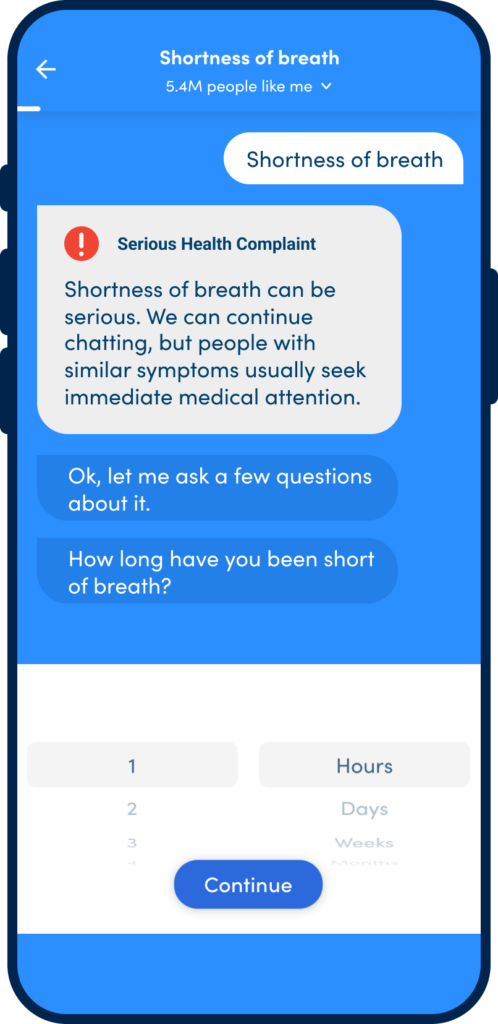
As the conversation progressed, the AI was able to identify that she was possibly in an emergency situation. It asked if she was experiencing “Slurred or Abnormal Speech,” “Facial Droop,” “Arm Weakness,” “Extremity Numbness,” and “Vision Change.” Her answers were yes.
Based on K’s algorithm, which looked at her gender, age, and symptoms, K quickly informed her that patients with similar symptoms were diagnosed with two conditions, both of which are considered an emergency and required in-person care: transient ischemic attack (TIA), which is known as a “ministroke,” and stroke.
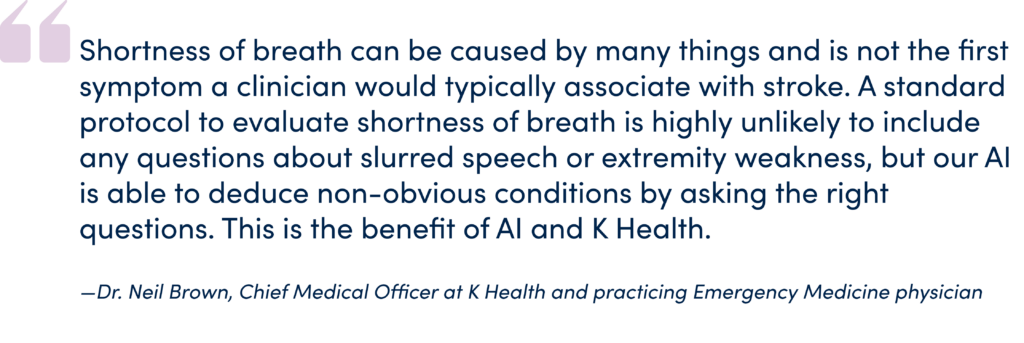
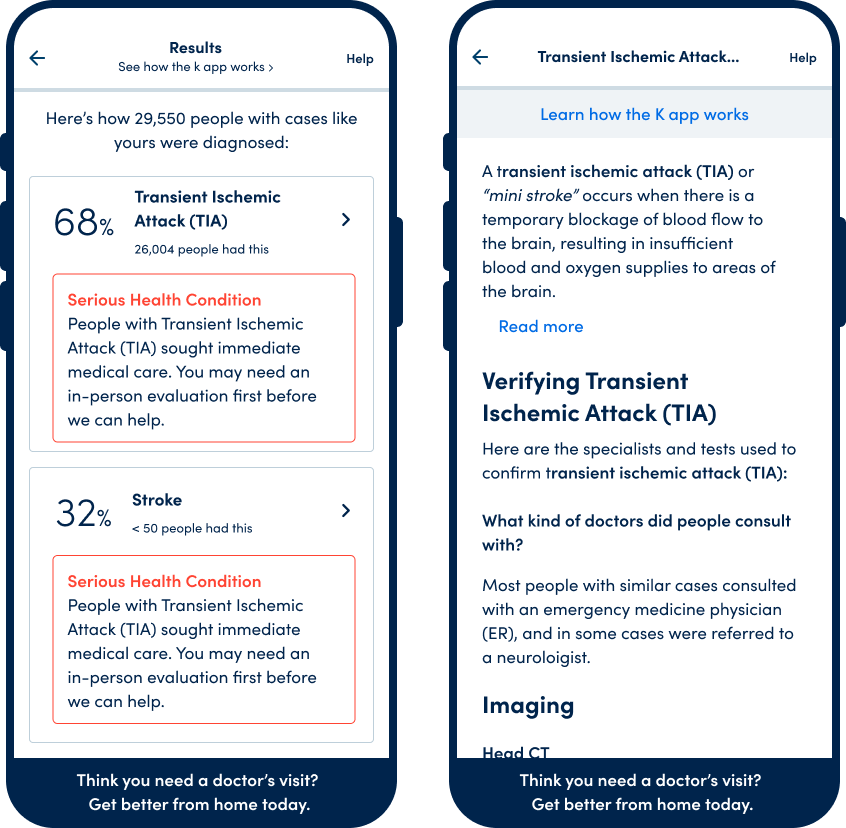
A stroke is when blood supply to the brain is suddenly interrupted or reduced, which can cause parts of the brain to be starved of oxygen and become damaged. A TIA is similar to a stroke, but only lasts for a short time and usually doesn’t cause the same type of long-term damage or aftereffects.
The results rattled Stephanie, and even though the app told her she may need in-person care, she was too nervous to call 911. Instead, she decided to request a visit with a clinician on K Health’s 24/7 virtual platform. Through the app, she did a medical intake, uploaded a selfie, and shared her location in case she did end up needing an ambulance.
Data-Driven Information Empowered Her Doctor to Expedite Care
Dr. Stephanie Foley, a practicing physician and Director of Performance at K Health’s medical practice, was referred to the case. Dr. Foley, who completed her residency at Duke University, is based in North Carolina and practices in virtual care settings only.
As she reviewed Stephanie’s conversation with the Symptom Checker, Dr. Foley immediately knew the situation was likely an emergency. She compared the patient’s selfie to her driver’s license and saw that she had slight facial droop, a tell-tale sign of a stroke.
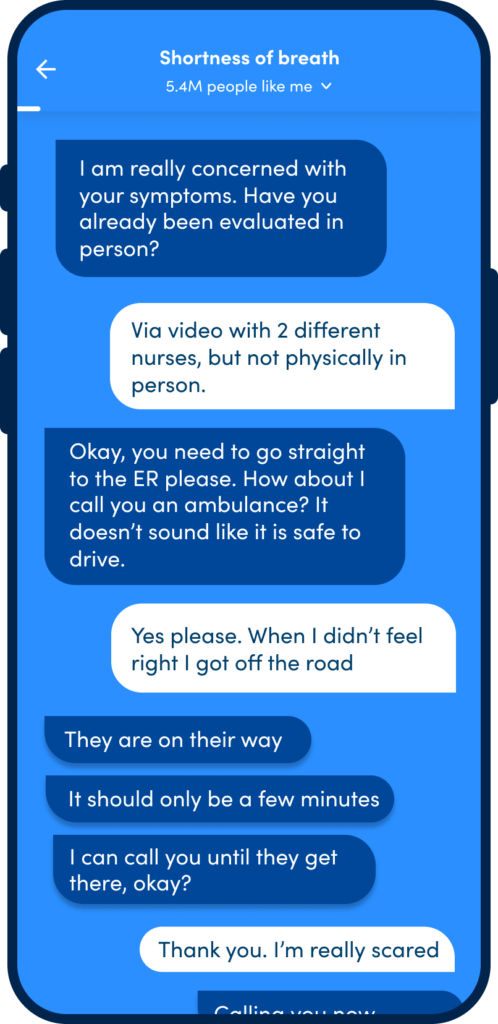
Dr. Foley immediately called local emergency medical services (EMS) and instructed them to activate the stroke protocol. This means when the patient arrived at the hospital, an ER physician would be ready and waiting to immediately confirm the stroke and administer potentially life-saving blood thinners. After talking with EMS, she stayed on the phone with Stephanie until they arrived.
Fifteen minutes later, EMS arrived and took Stephanie right to the local hospital, where an ER physician quickly got her a CT scan and administered tissue plasminogen activator (tPA), a drug that breaks down blood clots.
Stephanie’s symptoms began to improve. She was then transferred to a neurology intensive care unit at a hospital with stroke specialists. Within two days she was discharged, and when Dr. Foley followed up, she confirmed she was doing much better.
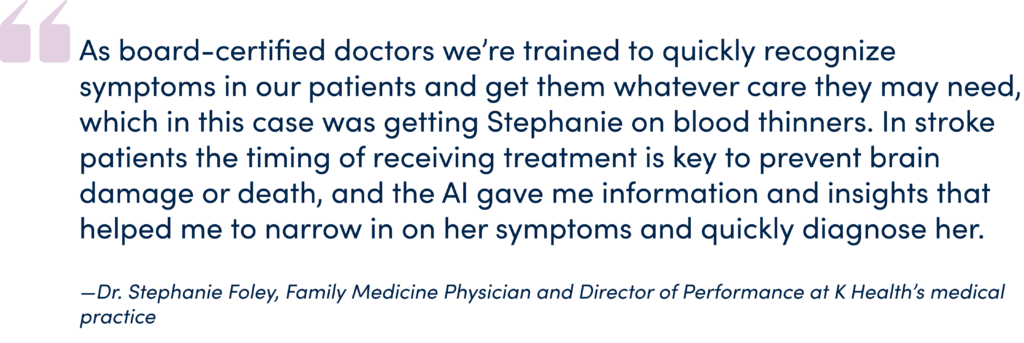
Timing Is Everything with Strokes, and K Health Got to Her Just in Time*
Even though Stephanie’s stroke symptoms were not obvious, having them dismissed for two days put her at a higher risk of serious brain damage—and even death.
Luckily, K Health’s clinical AI was able to quickly identify her stroke symptoms, despite her age and medical history, and provided her with the information and recommendation to seek emergency care quickly.
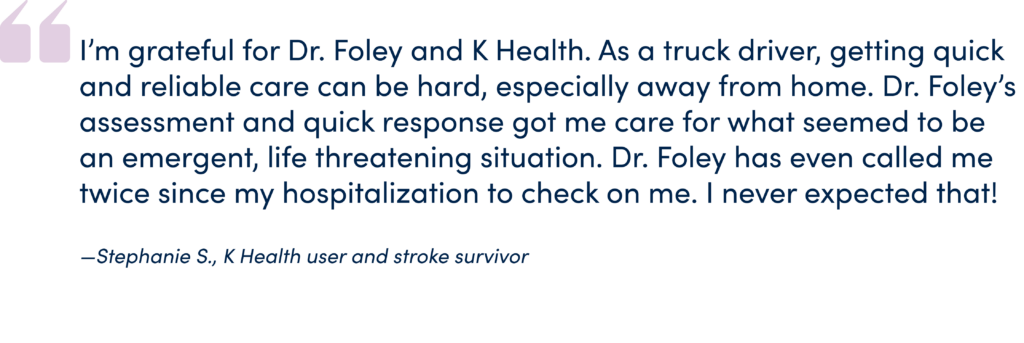
As of today Stephanie is currently healing and in stable condition.
*The K Health platform is for non-emergency services only and should not be used in case of emergency.

 Medically reviewed
by Stephanie Foley, MD
Medically reviewed
by Stephanie Foley, MD